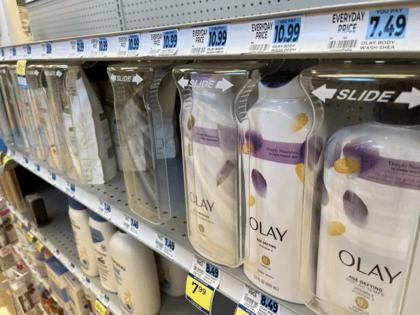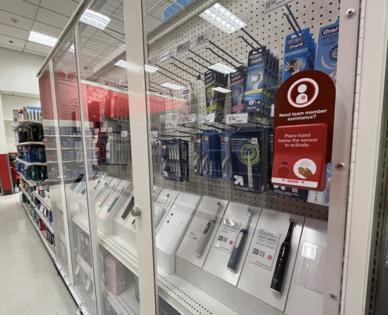'The bane of retail.' To prevent theft, many big chains now lock up all kinds of merchandise
Published in Business News
Detergent and deodorant, toothpaste, the entire shampoo aisle.
"It's all locked up," Corey Potter sighed, describing shelves encased behind security glass at a Target near her home in Los Angeles' Echo Park neighborhood. "I hate it."
Potter recalled once waiting 15 minutes for an employee to unlock a case at another Target location. These days, if she sees several other shoppers waiting for too few frenzied workers, the 30-year-old video editor typically skips items on her list and later does something she doesn't feel great about: buys more home essentials on Amazon.
"Rather than go to Target and wait," she said, shrugging, "I'll just give Daddy Bezos my hard-earned cash."
Shoplifting is as old as shopping itself. And retailers have long played a game of cat and mouse with thieves, searching for ways to thwart them while still giving paying customers easy access to merchandise.
The true severity and scope of the problem remain an enduring mystery of the free market, as national chains eagerly point to retail theft as a key drag on profits, but are reticent to publicly discuss internal numbers on shrink — the industry term for theft and other types of loss — or specifics of new anti-theft measures. Adding to the murkiness, the issue has become more politicized in recent years as some voters and elected officials in Los Angeles, San Francisco and other city centers clamor for a response to what they see as a worsening problem.
But what is clear to anyone who has shopped at a drug, grocery or home improvement store in L.A. in recent years is that retailers are increasingly resorting to the drastic step of barricading entire swaths of their stores behind lock and key.
Using a tactic once reserved for a few pricey, high-demand items — cold medication, electronics, baby formula and razors to name a few — big chains now routinely lock up almost every type of merchandise. A shopper looking to grab a box of condoms or a $1.99 set of crayons, ointment to remove calluses or a container of instant coffee, now often has no choice but to hit a button to summon a store employee with a key and wait.
Executives focused on their companies' bottom lines are no happier about taking the drastic step to deter shoplifters. Although they're in the business of selling as much as possible, they've been left to make the seemingly backward calculation that thefts require them to make it harder for paying customers to buy things.
"Locking a product," a spokesperson for CVS said in an email, "is a measure of last resort."
...continued
©2024 Los Angeles Times. Visit at latimes.com. Distributed by Tribune Content Agency, LLC.










Comments